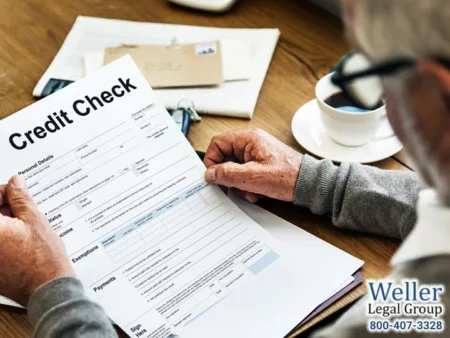 Your credit score is more important than ever before, affecting everything from your job prospects to your credit card interest rates. Many people use their energy to acquire and keep the best credit score possible, but sometimes this isn’t possible due to an unforeseen event. When this happens, you may need to file for liquidation.
Your credit score is more important than ever before, affecting everything from your job prospects to your credit card interest rates. Many people use their energy to acquire and keep the best credit score possible, but sometimes this isn’t possible due to an unforeseen event. When this happens, you may need to file for liquidation.
How the Bankruptcy Process Works
When you take out a credit card or loan, it’ll be listed on your credit report. If you can’t pay, the information will fall off over time. This means that the older the damaging information is, the less it’ll impact your credit score. For instance, it’ll only take seven years for any debts associated with foreclosures on real property, collection efforts, or delinquent credit cards or mortgage payments to fall off your credit report. However, if you have any unpaid tax liens or other public debts, they’ll remain on your report indefinitely.
The good news is that you don’t have to wait for 7 – 10 years to improve your credit. You’ll have any adverse information removed from your creditors’ reports sooner by filing for liquidation. The process will remove any adverse information that your creditors have listed on your report.
When Liquidations are Removed From Your Credit Report
Now that you have a ray of hope again, you may find yourself wondering just how long it’ll take for your credit score to improve. This answer will depend upon the type of case you’re allowed to file.
There are two types of cases: Chapter 7 and Chapter 13.
When you file Chapter 13, you’ll have some debts reorganized, and others discharged. Everything will eventually fall off your credit report in seven years. However, with Chapter 7, the information remains on your report for ten years.
While you may think this type of case will ruin your credit, this typically doesn’t happen. You’ll feel some impact, but eventually, you’ll overcome it. You can start to build a great credit score again. Doing so will take some time, but the good news is that it’s possible. Some people have built credit scores of 570 – 600 in six months. It depends on the amount of time and effort you’re willing to put into rebuilding your credit.
Generally, banks see folks who have just received a bankruptcy discharge as promising candidates for a new loan. This is because you no longer have any outstanding debts, and you can’t discharge your newly acquired debts in another bankruptcy. Once you have new credit extended to you, it’s essential to make sure you make all of your payments on time. By maintaining low balances, you’ll be able to improve your credit score even further.
If you’re interested in obtaining credit right away, make sure that you pull your credit report from all three credit bureaus as soon as your bankruptcy is discharged. Doing so will allow you to see that all of your debts have indeed been discharged and that your discharge order has been correctly listed.
Prepare to File for Your Liquidation Today
The good news is that bankruptcy won’t ruin your credit score since it only affects your report for 7 – 10 years. You may not realize that it can improve your score since you’ll have unsecured debts discharged. This discharge will free up resources so you can pay off your essential debts. When you’re ready to take this step, don’t take on the additional stress of trying to handle the process yourself. Contact us at the Weller Legal Group in Tampa, FL, if you have questions about how filing for bankruptcy will affect your credit report.
Picture Credit: Freepik

